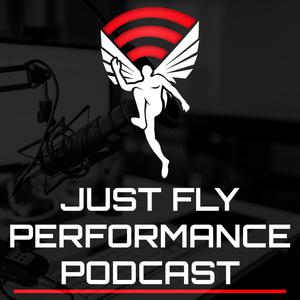398: Mark McLaughlin on The Art of Total Athlete Development
Today’s podcast is with Mark McLaughlin. Mark is the founder of Performance Training Center, and currently works as a physical preparation/strength coach in the Lake Oswego school district. Mark has had a diverse sporting history as a youth, and has been active in the field of physical preparation since 1997. Mark has trained over 700 athletes at all competitive levels, from Olympic to grade school athletes, and has worked with organizations such as the NFL, MLB, NBA, NCAA universities, high schools, and youth sports.
On the last podcast (#358), Mark spoke on his creative and wide-ranging approach to athletic performance, with an emphasis on movement training and athlete learning, as well as technology and the importance of the aerobic system in athletes.
For today’s show, we center on a case study of one of Mark’s high school athletes who put 2 feet on his standing long jump and 11 inches on his vertical jump in just over 2 years time. Within this framework, we get into Mark’s ideas on athlete autonomy and feedback, jump training, progression and pacing of work, hill sprints, capacity, and more.
Today’s episode is brought to you by Lost Empire Herbs, TeamBuildr and the Plyomat.
TeamBuildr is an online software for coaches and trainers. Use the code “JUSTFLY” for a free 30 day trial of the TeamBuildr software at https://teambuildr.com.
For 15% off your Lost Empire Herbs order, head to lostempireherbs.com/justfly.
To try Pine Pollen for free (just pay for shipping), head to: justflypinepollen.com.
The Plyomat is a functional, intuitive, and affordable contact mat for jump and plyometric training and testing. Check out the Plyomat at www.plyomat.net
View more podcast episodes at the podcast homepage.
Timestamps and Main Points
6:25- The Role of Autonomy in Athletic Development
10:37- Gradual Increase in Plyometric Training Intensity
15:58- Optimizing Performance Through Reduced Training Volume
25:30- The Benefits of Diversifying Training Methods
35:33- Strength Training Concepts for Well Rounded Development
43:19- Optimizing Performance through Feedback and Monitoring
55:26- The Impact of Intent and Constraints
1:00:26- Jump Testing Device with Reactive Strength Measurements
1:02:59- Plyometric and Jump Training
1:09:16- Hunter's Varied and Intense Training Regimen
1:20:22- Hill Sprinting, Speed and Work Capacity
Mark McLaughlin Quotes
“So we just basically cut the volume almost by two thirds. And within the first month, his vertical increased like five inches”
“Well, as a coach, sometimes I'm kind of constraint led as well. And so, kind of some of the things that I did to facilitate fun and progress was I started a gymnastics program, per se, within the athletic development model that I have there, and all the kids love it. So, number one, and that's part of the warm up. So that's one to get them there, the other thing that we do prior to training is game based. So they could play team handball, they could play ultimate football, ultimate Frisbee. We have a rugby ball, soccer.”
“And again, when you ask kids, I think this is part of coaching in this country that is just bad to me, is we're never asking the athletes what they like. How do you feel about the training? Do you like what we're doing? No, I don't. Okay, then let's figure out what you do like. To keep you coming back. I do a questionnaire with every team twice a year to find out through my program what they like, what they don't like, my coaching style. So I can then refine this thing year to year to make it truly athlete centered”
“This past year, I bought an adjustable hoop for the weight room, so we were doing different dunks and different jumping activities”
“Yeah. I grew up with three younger brothers. We had a dunk hoop that would raise from, like, eight and a half to nine and a half feet, and you would watch Julius Irving dunk on somebody. Then you're trying to go out and dunk on your brot...
15 February 2024, 1:45 pm
